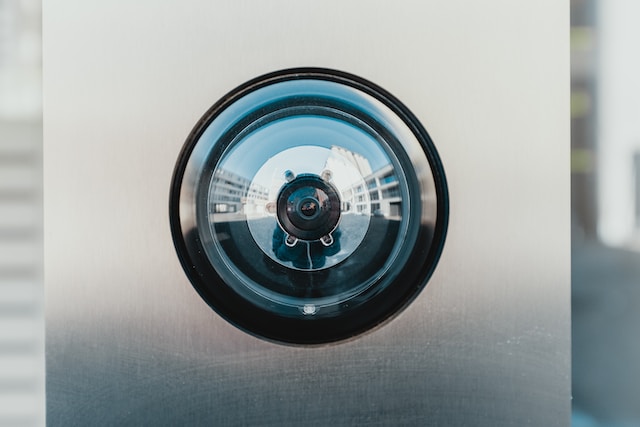Business security has never been more critical than it is today. As organizations grow and adapt to an ever-changing landscape, safeguarding physical assets and personnel becomes paramount. In this article, we’ll delve into the world of business security, focusing on two essential components: intercom systems and security cameras. These unassuming devices play a significant role in securing your premises, keeping an eye on activities, and controlling access.
The Role of Intercom Systems
Intercom systems for business have come a long way from the simple buzz-and-entry setup. Nowadays, they serve multiple functions that contribute to the overall security of a business. One of the primary roles of intercoms is communication. It’s not just about letting someone in; it’s about establishing clear and efficient lines of communication within your establishment.
Imagine a scenario where an employee needs access to a secured area. Instead of relying on traditional keys or running across the building to unlock doors, intercom systems provide seamless communication. An employee can request access, identify themselves, and be granted entry without leaving their workstation.
Beyond facilitating communication, intercom systems contribute to access control. You can determine who enters your premises and when. This level of control is invaluable for businesses that require restricted access to certain areas.
In addition to their communicative functions, intercom systems are instrumental in enhancing overall security. They can be integrated with other security measures, such as access cards or biometric authentication, to create a robust security ecosystem. This integration ensures that only authorized personnel can gain entry, significantly reducing the risk of unauthorized access.
The Power of Security Cameras
While intercom systems excel in communication and access control, security cameras are your watchful eyes. Commercial video surveillance have become ubiquitous, and for good reason. They are not just passive observers; they actively deter unwanted activities and provide valuable evidence when needed.
Modern security cameras are equipped with high-definition recording capabilities, infrared night vision, and even motion sensors. This means that they can capture clear footage both day and night. For businesses, this 24/7 monitoring capability is a game-changer.
Beyond deterrence and monitoring, security cameras play a crucial role in physical security assessments. They provide a visual record of events, helping businesses analyze past incidents and identify vulnerabilities. This proactive approach to security allows businesses to take preemptive measures, reducing the likelihood of security breaches.
Choosing the Right Security Solutions
Selecting the right security solutions for your business involves a strategic approach. It’s not just about picking the shiniest gadgets; it’s about identifying your specific security needs and addressing them effectively. This is where a physical security systems design & engineering company comes into play.
Such a company specializes in assessing your security requirements. They conduct physical security assessments to determine the vulnerabilities and strengths of your current setup. The results of these assessments serve as the foundation for your security strategy.
The Costs of Security Implementation
The commercial security camera installation cost can vary significantly depending on several factors. One of the primary considerations is the size of your premises. Larger spaces may require more cameras and intercom units, naturally increasing the cost.
The choice of technology also plays a role. High-definition cameras with advanced features may come at a higher price point but offer superior image quality and functionality. Similarly, intercom systems can range from basic models to more sophisticated ones with video capabilities.
Breaking down the expenses, you’ll need to consider the costs of purchasing the necessary equipment, including cameras, intercom units, and any additional accessories. Maintenance is another aspect to keep in mind. While modern security systems are designed for durability, regular upkeep is essential to ensure they continue to function optimally.
Remember that while there are costs associated with implementing security measures, the investment in the safety of your business, employees, and assets is invaluable. By budgeting carefully and prioritizing security, you’ll create a safer work environment that promotes peace of mind and productivity.
Seamless Integration
The beauty of modern security solutions is their ability to work together seamlessly. Intercom systems can be integrated with security cameras to provide a holistic security experience. When someone uses an intercom to request access, the associated camera can provide a visual confirmation of their identity. This added layer of verification ensures that only authorized individuals are granted entry.
Moreover, security cameras can be strategically placed to cover critical areas, such as entrances, exits, and high-traffic zones. When integrated with intercom systems, these cameras can provide live video feeds to security personnel, allowing them to assess situations in real-time. In case of suspicious activity or security breaches, immediate action can be taken.
Remote Monitoring and Access Control
Another advantage of integrating intercom systems and security cameras is the ability to remotely monitor and control your business’s security. With modern technology, you can access live camera feeds and intercom communications from virtually anywhere, using your computer or mobile device.
Imagine you receive an intercom request from someone seeking entry to your business premises while you’re away. You can visually verify their identity through the connected security camera and grant access remotely. This level of control not only enhances security but also offers convenience.
Strategies for Enhanced Business Security
While intercom systems and security cameras are invaluable components of your security strategy, there are additional strategies you can employ to enhance business security further.
You can implement a robust access control system that includes not only intercoms and security cameras but also keycards, biometric authentication, or other advanced methods. This multi-layered approach ensures that access is granted only to authorized personnel. Speaking of personnel, consider having an on-site security team who can respond to security incidents in real-time.
Another step is to establish clear security policies and protocols for your employees. Conduct regular security awareness training to ensure that everyone understands their role in maintaining a safe workplace.
Schedule regular maintenance for your security systems to ensure they are always in optimal working condition. This includes any security equipment, including cameras and intercoms.
Conclusion
In conclusion, business security is a multifaceted endeavor that requires careful planning and the right tools. Intercom systems and security cameras are indispensable components of a robust security strategy, offering communication, access control, monitoring, and deterrence capabilities.
When considering these security solutions, it’s essential to consult with a physical security systems design company. Their expertise in conducting physical security assessments and designing tailored security strategies can make all the difference in safeguarding your business.
Remember that security is an investment, and while there may be costs involved, the peace of mind and protection it provides are invaluable. Prioritize the safety of your business, employees, and assets by implementing a comprehensive security approach that includes intercom systems and security cameras.
With the right strategy and the help of experts, you can create a secure environment that allows your business to thrive without compromising safety.







